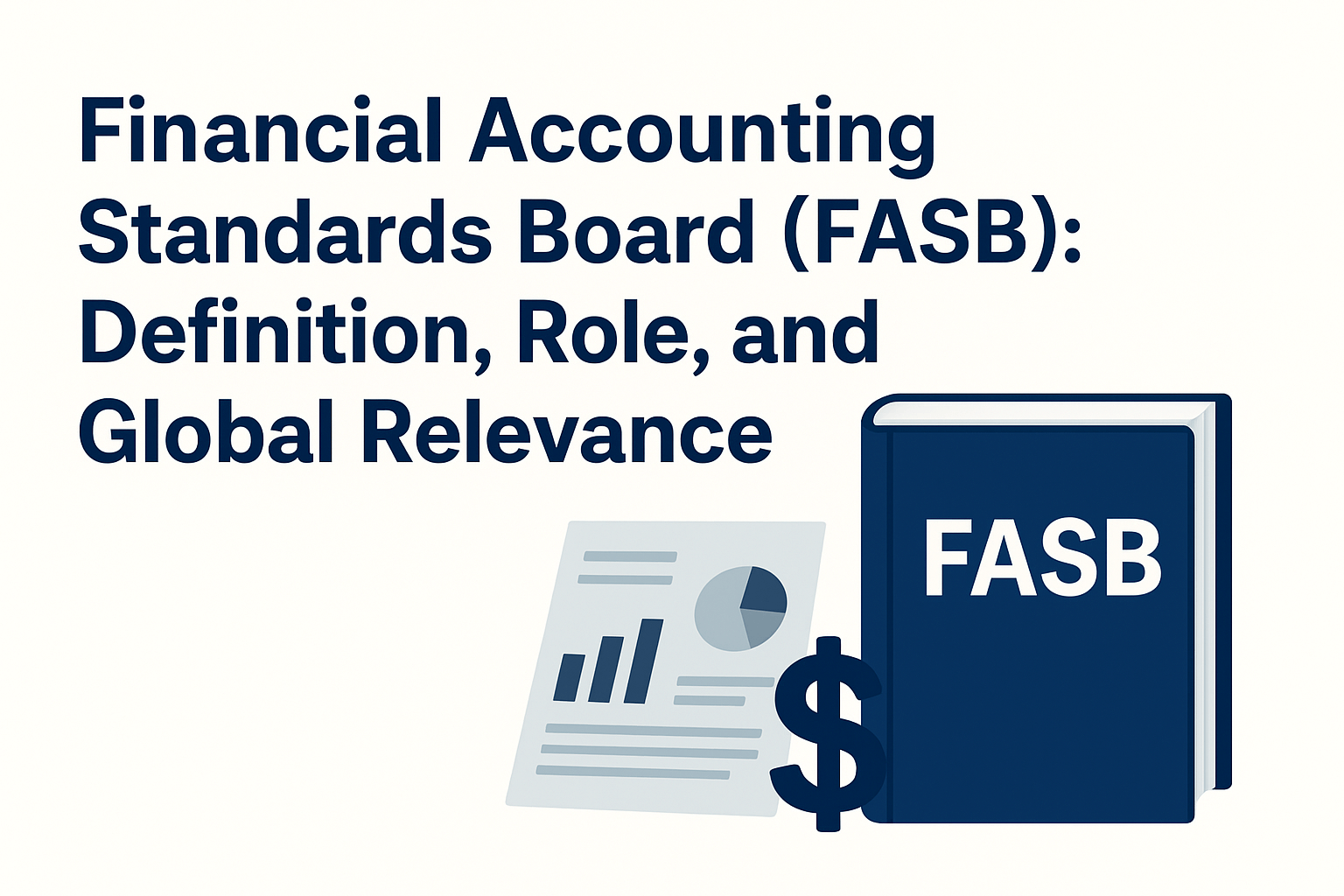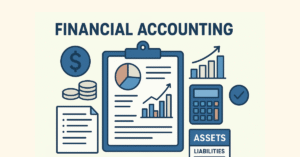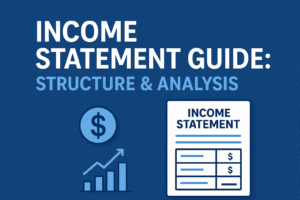The Financial Accounting Standards Board (FASB) is the cornerstone of financial reporting in the United States. Since its establishment in 1973, it has been responsible for developing and maintaining Generally Accepted Accounting Principles (GAAP) — the accounting framework that businesses, nonprofits, and public companies must follow when preparing financial statements.
By ensuring consistency, transparency, and comparability in financial reporting, the FASB enables investors, regulators, creditors, and other stakeholders to make informed decisions with confidence. Its influence goes beyond technical accounting rules—it shapes how businesses communicate their financial health, how investors allocate capital, and how the U.S. economy maintains trust and stability in its markets.
What Is the Financial Accounting Standards Board (FASB)?
The Financial Accounting Standards Board (FASB) is an independent, private, non-profit organization that sets and improves accounting standards in the United States. Established in 1973, the FASB is recognized as the authority that develops GAAP, which govern how businesses and organizations prepare and present their financial statements.
The Board’s mission is straightforward yet vital: to ensure that financial reporting provides useful, reliable, and comparable information to investors, creditors, regulators, and other stakeholders. By doing so, the FASB plays a key role in maintaining trust, transparency, and stability in the U.S. financial system.
In today’s globalized economy, where financial markets depend on accuracy and consistency, the FASB’s work goes far beyond technical accounting—it directly impacts decision-making at all levels, from Wall Street investors to small business owners.
How the Financial Accounting Standards Board (FASB) Works
The FASB operates under a carefully structured system to balance technical expertise with public input. Its operations are guided by independence, transparency, and accountability, ensuring that accounting standards meet the needs of a wide variety of stakeholders.
1. Organizational Structure
- Board Members: The FASB is composed of seven full-time board members, each with a background in accounting, finance, academia, or regulatory oversight. These members are appointed for renewable five-year terms.
- Oversight: The FASB is overseen by the Financial Accounting Foundation (FAF), which appoints board members and monitors the organization’s effectiveness.
- Advisory Support: The Financial Accounting Standards Advisory Council (FASAC) provides feedback from investors, auditors, corporations, and academics, helping ensure that the FASB’s decisions reflect diverse perspectives.
2. The Standard-Setting Process
The process of creating or updating accounting standards is both rigorous and participatory:
- Issue Identification – The FASB identifies areas of concern in financial reporting through research, stakeholder requests, or new business practices.
- Agenda Decision – The Board decides if the issue is significant enough to add to its formal agenda.
- Research & Deliberation – Staff and board members analyze data, consider alternatives, and debate possible solutions.
- Public Exposure Draft – Proposed standards are released for public comment. Accountants, businesses, investors, and regulators can provide feedback.
- Final Standard (ASU) – After reviewing input, the Board issues an Accounting Standards Update (ASU), which formally amends GAAP.
This process ensures that the FASB’s standards are not only technically sound but also practical and widely accepted.
3. Core Responsibilities of FASB
- Establishing GAAP: Setting accounting principles that companies must follow.
- Maintaining Relevance: Updating standards to reflect changes in technology, markets, and global business practices.
- Promoting Transparency: Ensuring that financial statements provide clear and useful information.
- Educating Stakeholders: Offering guidance to accountants, auditors, and financial professionals.
- Collaborating Internationally: Working with global standard setters like the IASB to promote consistency.
FASB vs. IASB
The FASB is the U.S. authority for financial reporting, while the International Accounting Standards Board (IASB) sets standards for the rest of the world. Understanding their differences is crucial, especially for multinational companies.
- Jurisdiction
- FASB: Oversees GAAP, mandatory for all U.S. public companies under the U.S. Securities and Exchange Commission (SEC).
- IASB: Oversees International Financial Reporting Standards (IFRS), used in more than 140 countries, including the EU, Canada, and much of Asia.
- Framework Approach
- FASB (GAAP): Rules-based system — detailed guidance designed to cover specific scenarios and reduce uncertainty.
- IASB (IFRS): Principles-based system — broader guidelines that allow professional judgment in application.
- Key Differences in Practice
- Revenue Recognition: Historically different, though both boards worked on convergence (ASC 606 / IFRS 15).
- Inventory Accounting: GAAP permits LIFO (Last In, First Out), while IFRS prohibits it.
- Lease Accounting: Both have aligned approaches, but implementation details still vary.
- Convergence Efforts
For years, the FASB and IASB worked to minimize differences between GAAP and IFRS. While significant progress has been made, full convergence remains unlikely due to different legal, regulatory, and cultural environments.
Bottom Line:
- FASB: Ensures consistent reporting in the U.S.
- IASB: Provides a global standard for international financial reporting.
Companies operating globally often need to reconcile both GAAP and IFRS, which can be resource-intensive but necessary for compliance.
Why the Financial Accounting Standards Board (FASB) Matters
The FASB’s influence extends far beyond accountants and financial professionals—it is fundamental to the functioning of the U.S. economy.
- Investor Confidence
Transparent, consistent financial reporting builds trust in markets, enabling investors to make sound decisions based on reliable data. - Corporate Accountability
By requiring uniform reporting, the FASB ensures companies disclose essential information in a comparable format, reducing the risk of manipulation or fraud. - Economic Stability
Reliable financial reporting reduces uncertainty, strengthens market efficiency, and supports long-term economic growth. - Global Relevance
Although focused on the U.S., FASB standards are closely watched worldwide. Global investors frequently rely on GAAP reports when assessing U.S.-based companies. - Adapting to Change
From digital assets and cryptocurrencies to ESG (Environmental, Social, and Governance) disclosures, the FASB continuously updates standards to reflect emerging business realities.
Final Thoughts
The Financial Accounting Standards Board (FASB) serves as the backbone of U.S. financial reporting. By creating and maintaining GAAP, it ensures that financial statements are accurate, comparable, and useful to all stakeholders.
- For investors, it builds confidence in capital markets.
- For companies, it provides a structured framework for transparency.
- For the economy, it enhances stability and trust.
As business environments continue to evolve, the FASB remains at the forefront of ensuring that financial reporting stays relevant, reliable, and globally respected.







